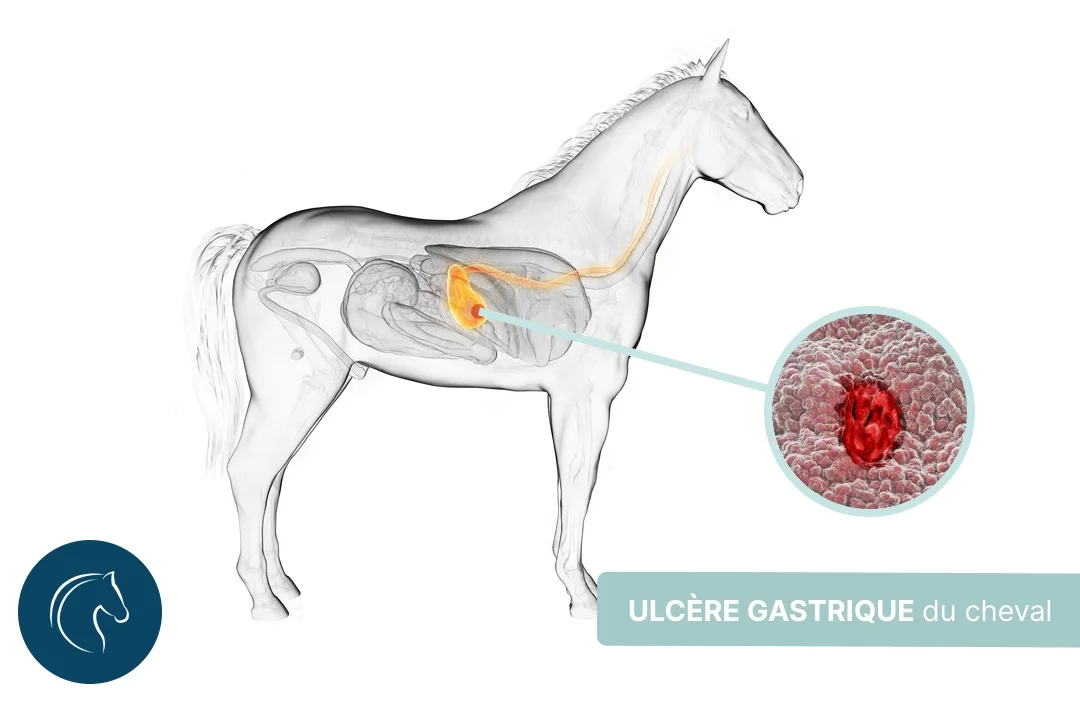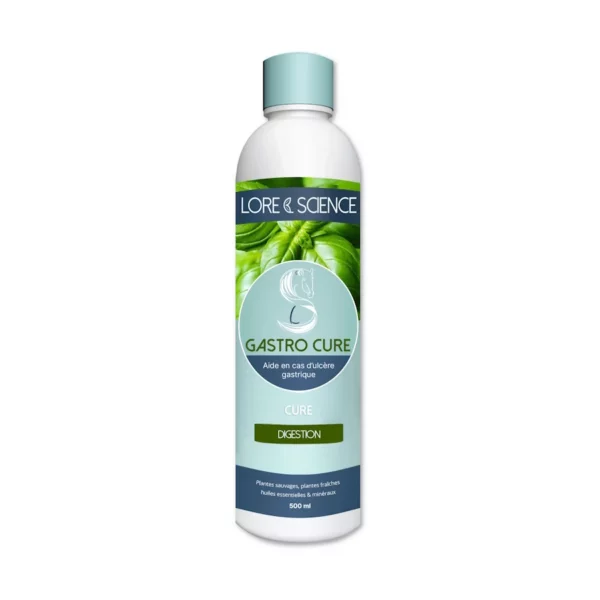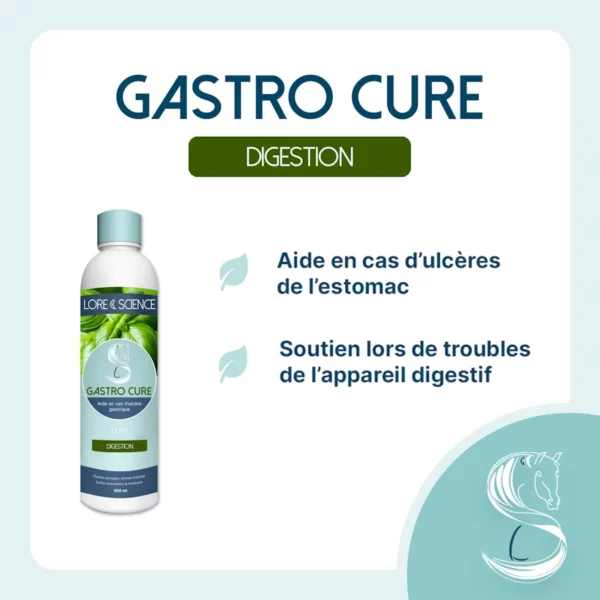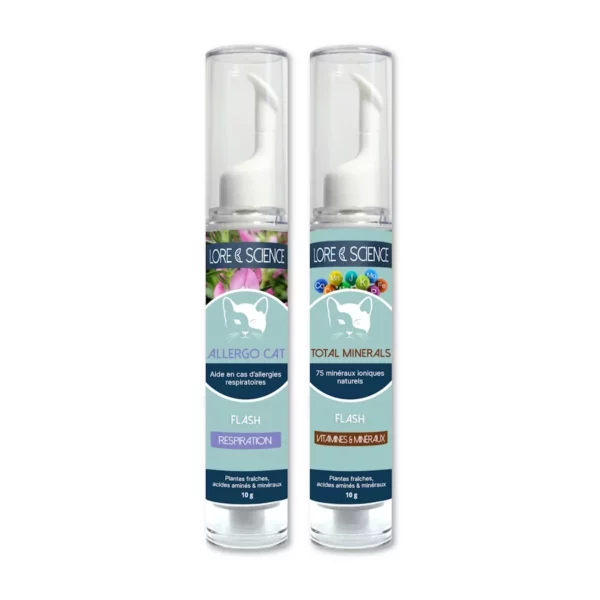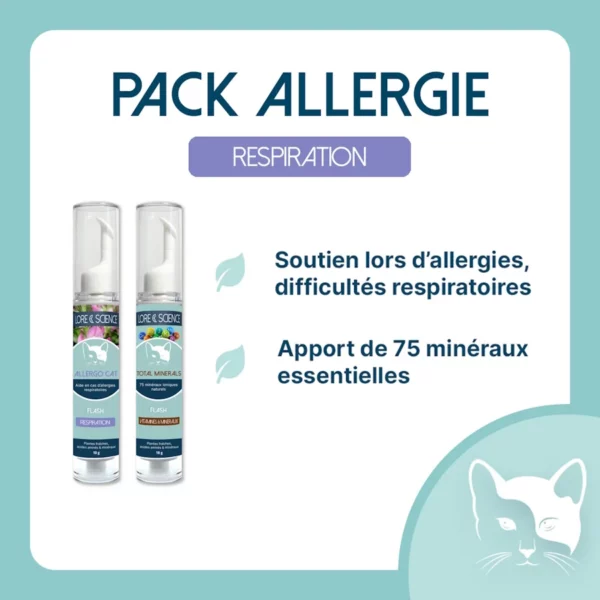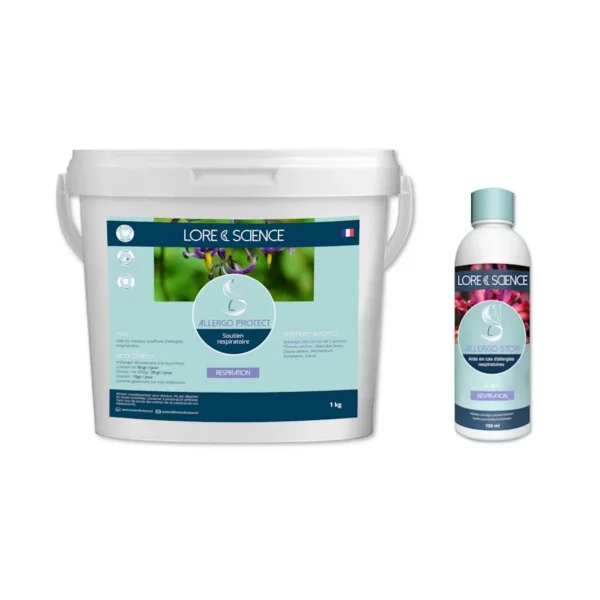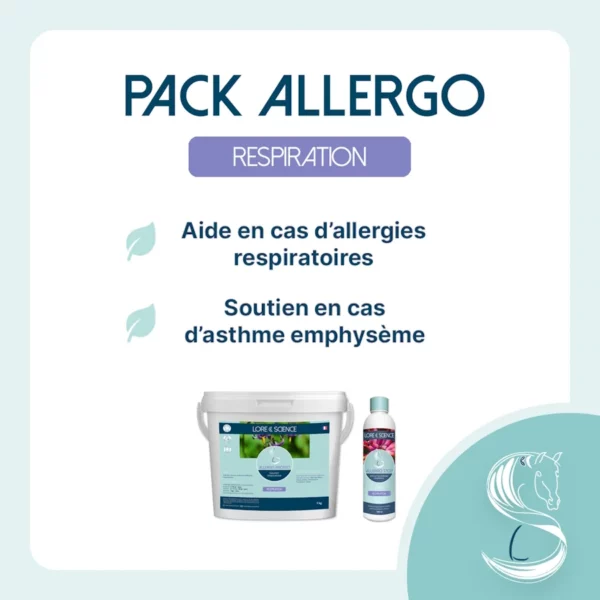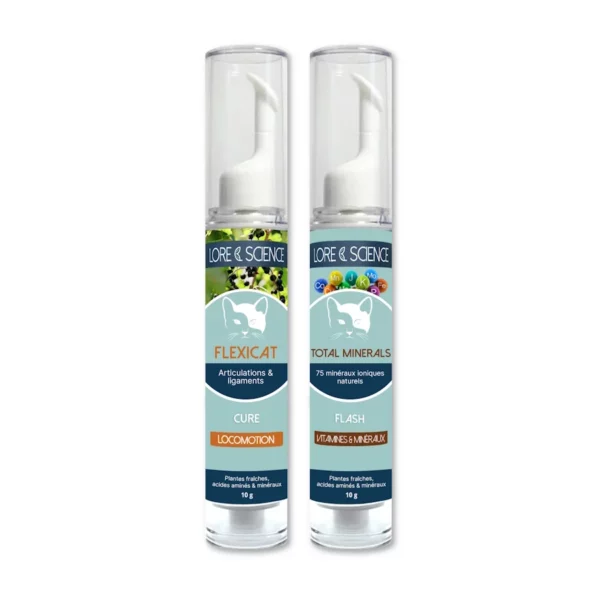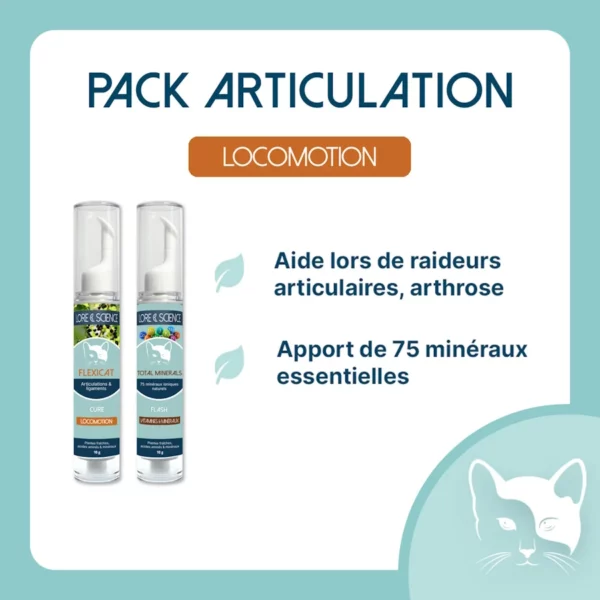Gastric ulcers are a very common condition in horses. Also known as equine gastric ulceration syndrome, it is an erosion that affects the mucosa of the stomach,esophagus or the first part of the small intestine (duodenum) to a greater or lesser extent.
Painful, this disease can impact the quality of life and performance of horses.
Lore & Science gives you its advice on how to treat ulcers in horses naturally and effectively.
What causes horse ulcers?
Power supply
The horse is a herbivore whose digestive system is adapted to regular ingestion of small quantities of high-fiber food. The stomach continuously produces hydrochloric acid, which is normally regulated by the production of saliva through chewing.
When a horse eats less fiber and chews less due to eating too far apart, the acidity of the stomach increases, creating a higher risk of ulcers. Normally, equines spend an average of 60% of their time grazing.
Stall life and low-fiber feed cause an alteration of the intestinal balance, which is conducive to erosions of the digestive system.
The risk factors for ulcers in the diet are
- diets low in herbs or fodder
- meals that are too far apart in time, creating periods of fasting
- a lack of fiber and too much starch in the meals
- a lack of hydration which also limits salivation
Exercise
We often hear that ulcers are more common in racehorses, trotters, show horses and endurance horses. Indeed, the intensity of work can be a trigger for digestive diseases. Excessive work frequency or intensive exercise are additional risk factors. Movement is suspected to add to the risk of injury by displacing acids in the digestive system.
Stress
Inappropriate work also adds stress to the equine population. Therefore, in case of symptoms, rest is essential. It should be noted that horses on pasture are on average less affected by this type of lesion.
All breeds of horses are affected by the problem, but there is a predilection for English Thoroughbreds, Anglo-Arabs and Thoroughbreds.
How do I know if my horse has a stomach ache?
Symptoms of ulcers in foals
In foals, the symptoms are usually more obvious than in adult horses. Most commonly, they include hypersalivation, diarrhea, or bruxism (the grinding of teeth). In general, depletion and decreased energy levels should be considered.
Unweaned foals are particularly susceptible to diseases of the digestive system, especially if they are unable to maintain a normal feeding schedule. Prompt management is essential.
Symptoms of ulcers in the adult horse
The signals of stomach pain in adult horses are often subtle. It is therefore important to be alert to any change in behavior and to look for the cause. Hypersalivation, sudden bruxism, a dull coat, decreased performance and energy are all signs of underlying pain.
In a non-exhaustive way, these symptoms should alert to pain
potentially from an equine ulcer:
- diarrhea
- loss of appetite or food sorting
- decreased performance or sudden reluctance to work
- difficulty gaining weight, weight loss and general poor physical condition
- unusual teeth grinding
- a horse that lies down or rolls a lot
When in doubt, always call a veterinarian who can make a more accurate diagnosis.
diagnosis.
How to react to these symptoms?
Faced with these tenuous signals, which may come from other diseases, it is important to perform a clinical
important to perform a clinical examination to confirm the diagnosis. Your veterinarian will perform a gastroscopy. Not very painful for the animal, it consists in inserting a camera through the nostril to the horse's stomach to visualize and confirm the presence of lesions.
Nevertheless, this examination remains a source of stress for the animal, and requires a food break, harmful in case of ulcer. Also, a treatment is sometimes put in place as soon as an ulcer is suspected. Natural treatments are particularly recommended in this case. They avoid side effects and show a quick improvement of the horse's condition.
How to treat a horse ulcer?
Essential oils and phytotherapy against equine ulcers
Essential oils and medicinal plants have a recognized action in thetreatment of horseulcers. Their use is validated by clinical studies in particular for their antispasmodic and anti-bacterial virtues on the Helicobacter pylori bacteria.
To accompany you in the treatment of your animal, the laboratory Lore & Science has developed Gastro Curea solution based on 100% natural products to treat this condition.
The combination of fresh plants and organic essential oils helps regulate stomach acidity while accelerating the healing of gastric wounds and lesions. For a fast relief, Gastro Flash will calm the spasms and restore the appetite of the affected horse from the first intake, while protecting the stomach. It is an ideal treatment starter.
A conducive environment to avoid recurrence
As we have seen, lifestyle is a risk factor for gastric ulcers.
Horses are particularly susceptible to this, so it is important to create an environment that is conducive to avoiding recurrences.
We recommend a suitable daily routine and a reasonable frequency. During the training period, it is important to take time to relax in order to limit the risks.
Daily outings to the paddock when grazing is not possible will be very beneficial for prevention.
On the feeding side, access to forage or pasture for regular grazing will be a significant asset. In any case, fasting for more than 4 hours between two meals should be avoided. On the contrary, small quantities of food offered throughout the day should be favored for a good recovery of the intestinal flora.
A diet rich in fiber also promotes a good digestive system.
Do you have any questions about the natural treatment of horse ulcers?
Leave us a comment ↓





